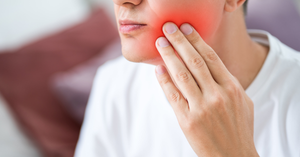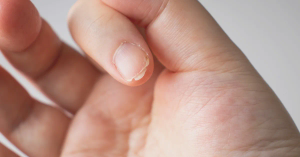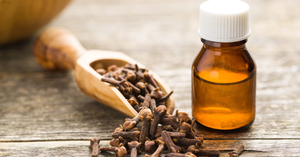Pregnancy brings about numerous changes in a woman’s body, many of which persist even after childbirth. While much attention is given to postpartum recovery in terms of physical and emotional health, oral health is often overlooked. However, hormonal fluctuations, nutritional deficiencies, and lifestyle adjustments during the postpartum period can have significant effects on a woman’s dental health.
Changes in estrogen, progesterone, and other hormones can lead to increased gum sensitivity, enamel erosion, dry mouth, and even tooth loss if proper care is not taken. Additionally, oral hygiene habits may take a backseat as new mothers prioritize caring for their newborns. Understanding these postpartum dental changes is essential to prevent long-term oral health issues.
Real-Life Scenario: A New Mother’s Struggle with Postpartum Oral Health
Priya, a 30-year-old mother, had always maintained good oral hygiene. However, after giving birth, she noticed that her gums bled every time she brushed her teeth. She also experienced increased tooth sensitivity and frequent dry mouth, making it difficult to eat comfortably. Overwhelmed with caring for her newborn, she ignored these symptoms until she developed severe gum inflammation and cavities.
When she finally visited her dentist, she was diagnosed with postpartum gingivitis and enamel erosion, both of which were caused by hormonal changes and inadequate oral care. With professional treatment and improved hygiene habits, Priya was able to restore her oral health. Her experience highlights the importance of understanding postpartum dental changes and taking proactive measures to prevent complications.
How Hormonal Changes Affect Postpartum Dental Health?
Hormones play a critical role in regulating oral health. During pregnancy and postpartum, fluctuations in estrogen, progesterone, and oxytocin can significantly impact the gums, teeth, and overall oral microbiome.
1. Estrogen and Gum Sensitivity
• Estrogen levels drop significantly after childbirth, leading to reduced blood flow to the gums.
• This can cause gum inflammation, increased sensitivity, and slower healing of oral tissues.
2. Progesterone and Increased Risk of Gum Disease
• Progesterone, which remains elevated during pregnancy, stimulates bacterial growth in the mouth, leading to postpartum gingivitis.
• This inflammation can persist for months after delivery if not properly managed.
3. Oxytocin and Dry Mouth (Xerostomia)
• Oxytocin, the hormone responsible for breastfeeding, can reduce salivary flow, causing dry mouth.
• Saliva plays a key role in neutralizing acids, so decreased saliva can increase the risk of cavities and bad breath.
4. Calcium Depletion and Tooth Sensitivity
• During pregnancy, calcium is redirected to support fetal bone development, potentially leading to demineralization of teeth.
• If calcium intake is inadequate, new mothers may experience tooth sensitivity, weakened enamel, and an increased risk of cavities.
Common Postpartum Dental Issues
New mothers may experience several oral health problems due to hormonal changes, nutritional deficiencies, and altered oral hygiene routines.
1. Postpartum Gingivitis
• Characterized by red, swollen, and bleeding gums, postpartum gingivitis is a direct result of hormonal fluctuations and bacterial overgrowth.
• If left untreated, it can progress to periodontitis, a severe gum infection that can lead to tooth loss.
2. Enamel Erosion from Morning Sickness
• If a mother experienced frequent vomiting during pregnancy, stomach acids may have eroded the enamel.
• This makes teeth more vulnerable to decay, chipping, and sensitivity postpartum.
3. Postpartum Cavities (Dental Caries)
• Fatigue and a lack of time for oral care can lead to increased plaque buildup, resulting in postpartum cavities.
• Additionally, some mothers may consume more sugary snacks or drinks for energy, which further increases the risk of decay.
4. Temporomandibular Joint (TMJ) Pain
• Stress from new motherhood, lack of sleep, and frequent nighttime jaw clenching can lead to jaw pain, headaches, and clicking sounds in the jaw joint.
• This condition, known as TMJ dysfunction, can be exacerbated by postpartum hormonal changes.
5. Postpartum Periodontal Disease and Tooth Loss
• If gingivitis progresses to periodontitis, it can cause gum recession, bone loss, and eventual tooth mobility or loss.
• This is particularly common in mothers who already had pre-existing gum disease before pregnancy.
The Role of Hygiene in Postpartum Oral Health
Good oral hygiene is essential for preventing postpartum dental issues and maintaining overall well-being. However, due to exhaustion and adjusting to a newborn’s routine, many new mothers may neglect their oral care.
1. Daily Oral Care Routine
• Brush teeth twice a day with fluoride toothpaste to protect enamel and prevent cavities.
• Use a soft-bristled toothbrush to avoid irritating sensitive gums.
• Floss daily to remove plaque buildup between teeth and prevent gum inflammation.
2. Hydration and Saliva Stimulation
• Drink plenty of water to combat dry mouth and improve saliva flow.
• Chew sugar-free gum or xylitol mints to stimulate saliva production and neutralize acid levels in the mouth.
3. Calcium and Vitamin D Intake
• Increase dietary intake of calcium-rich foods (milk, cheese, yogurt, leafy greens) to strengthen teeth and bones.
• Take a Vitamin D supplement if necessary, as it aids in calcium absorption and bone health.
4. Limiting Sugary and Acidic Foods
• Reduce sugar consumption to prevent cavities, especially when snacking between meals.
• Avoid acidic drinks like soda and citrus juices, as they can erode enamel further.
5. Regular Dental Check-Ups
• Schedule a postpartum dental visit within six months after childbirth.
• Dentists can assess gum health, treat cavities, and provide fluoride treatments if necessary.
Long-Term Benefits of Postpartum Oral Care
Maintaining good oral health postpartum benefits both the mother and the baby.
• Preventing gum disease reduces the risk of bacteria spreading to the bloodstream, which can lead to other systemic infections.
• Studies suggest that maternal oral health influences a baby’s future dental health, as bacteria from a mother’s mouth can be transferred through shared utensils or kisses.
• Addressing postpartum dental issues early prevents long-term complications such as tooth loss, jaw pain, and chronic inflammation.
Conclusion: Prioritising Oral Health After Pregnancy
Postpartum dental health is often overlooked but plays a crucial role in a mother’s overall well-being. Hormonal fluctuations, stress, and changes in oral hygiene habits can lead to various dental issues, from gum disease to enamel erosion. By prioritizing oral hygiene, maintaining a nutritious diet, and scheduling regular dental check-ups, new mothers can protect their teeth and gums while ensuring a healthy future for themselves and their babies.
Postpartum recovery is not just about physical and mental health—it includes oral health as well. Taking simple yet effective steps can prevent dental complications and promote lifelong wellness.








